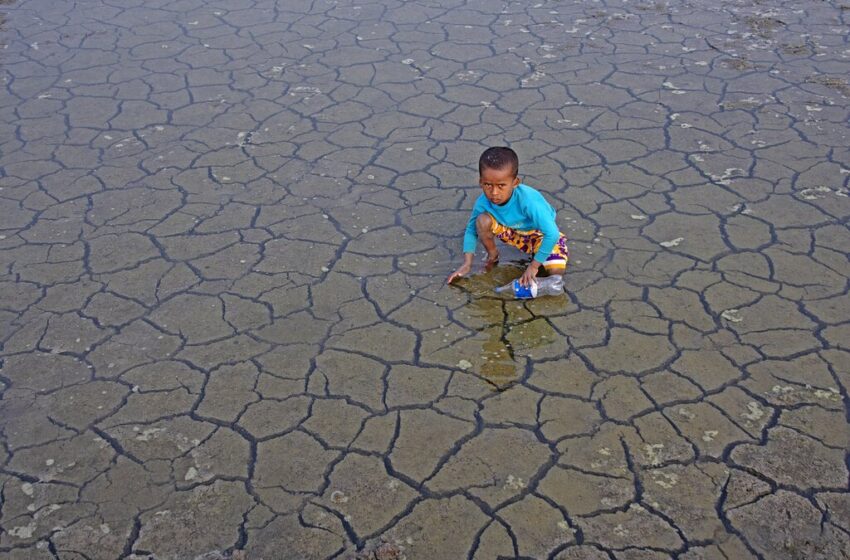
Earth.org
Jordan Gets $250 Million World Bank Loan to Improve its Water Services
In a big relief to the parched regions of Jordan, the World Bank has agreed to provide $250 million in financing to the Jordan Water Sector Efficiency Project to improve the efficiency of water services through the rehabilitation of water distribution networks, improving energy efficiency and strengthening the drought management system in the Hashemite Kingdom.
The project is considered as a boon to Jordan, which is one of the driest countries in the world, and is expected to minimise water losses, reduce electricity usage, and improve water management systems, the World Bank said in a statement.
One the project is completed it is estimated to benefit 1.6 million people by way of improved water services. Water system management will also be strengthened for farmers and industries, building economic productivity, and strengthening the country’s resilience to climate shocks, the statement said.
The approved financing for the Jordan Water Sector Efficiency Project consists of a $200 million loan from the International Bank for Reconstruction and Development (IBRD) and a $50 million grant from the Global Concessional Financing Facility (GCFF).
Launched in 2016, the GCFF provides concessional financing to middle income countries hosting large numbers of refugees. The project will target areas with higher refugee populations, providing benefits to both the refugees and the host community.
Jordan, the dehydrated country in the Middle East, is faced with a severe water crisis causing strain on the country’s economic and human development. With only 97 cu m of available water per capita per year, the supply is significantly below the absolute water scarcity threshold of 500 cu m per capita per year.
Over the past decade, population growth and the influx of refugees from countries, such as Syria and others engulfed in armed conflict, have severely strained water service delivery. Moreover, the combination of climate change and population growth is expected to further reduce per capita water resources availability by 30% by 2040.
Jordan’s population is now estimated to exceed 11 million compared with 8 million a decade ago and they include more than 760,000 people registered with the United Nations as refugees.
According to local English daily Jordan Times, limited water availability in the country is exacerbated by the fact that much of the water allocated for municipal use is lost: Over 50% of municipal water either leaks from pipes or is not paid for by the consumer and is considered non-revenue water (NRW).
Action Initiated
To address Jordan’s water crisis and to meet the growing demand for water, the country is trying to adopt bold water supply and demand-side actions and efficiency measures. The approved financing is intended to be the first in a proposed series of projects aimed at supporting Jordan in addressing water losses, promoting efficiency, enhancing service delivery, and improving financial sustainability of the water sector.
Jean-Christophe Carret, World Bank Country Director for the Middle East Department, said that the Jordanian government has been proactive in analysing water scarcity challenges and in formulating adaptive response measures.
“This new financing provides the investment support and long-term programmatic approach needed to mobilise major investments in infrastructure and institutional reform, linking planning with action to improve the efficiency and resilience of the water sector in Jordan,” Carret added.
The Jordan Water Sector Efficiency Project will address three key areas: It will focus on sustainable reduction of NRW by rehabilitating water supply infrastructure, modernising water supply systems and engaging customers and communities.
The project will also enhance energy efficiency and the reduction of energy supply costs. The project will implement measures for water security and drought management that will serve as a foundation for improving efficiency in the water sector and adapting to the challenges posed by climate change.
The Jordan Water Sector Efficiency Project is fully aligned with the Government’s Water Sector Strategy adopted in March 2023 and the Financial Sustainability Roadmap for the Water Sector adopted by the Cabinet of Ministers in November 2022.
The project also supports the implementation of key recommendations from the Jordan Country Climate and Development Report, which prioritise water sector efficiency, loss reduction, drought risk management, promotion of water-energy nexus solutions and water security.
The implementation of measures to reduce water losses is projected to save approximately 10 million cu m of water. This will improve water services for the people of Jordan and contribute to climate resilience.
The project will also establish a robust drought management system to improve water management practices. This system will bring benefits to households, farmers, and industries during recurrent droughts faced by Jordan, including those caused by the impacts of climate change.














